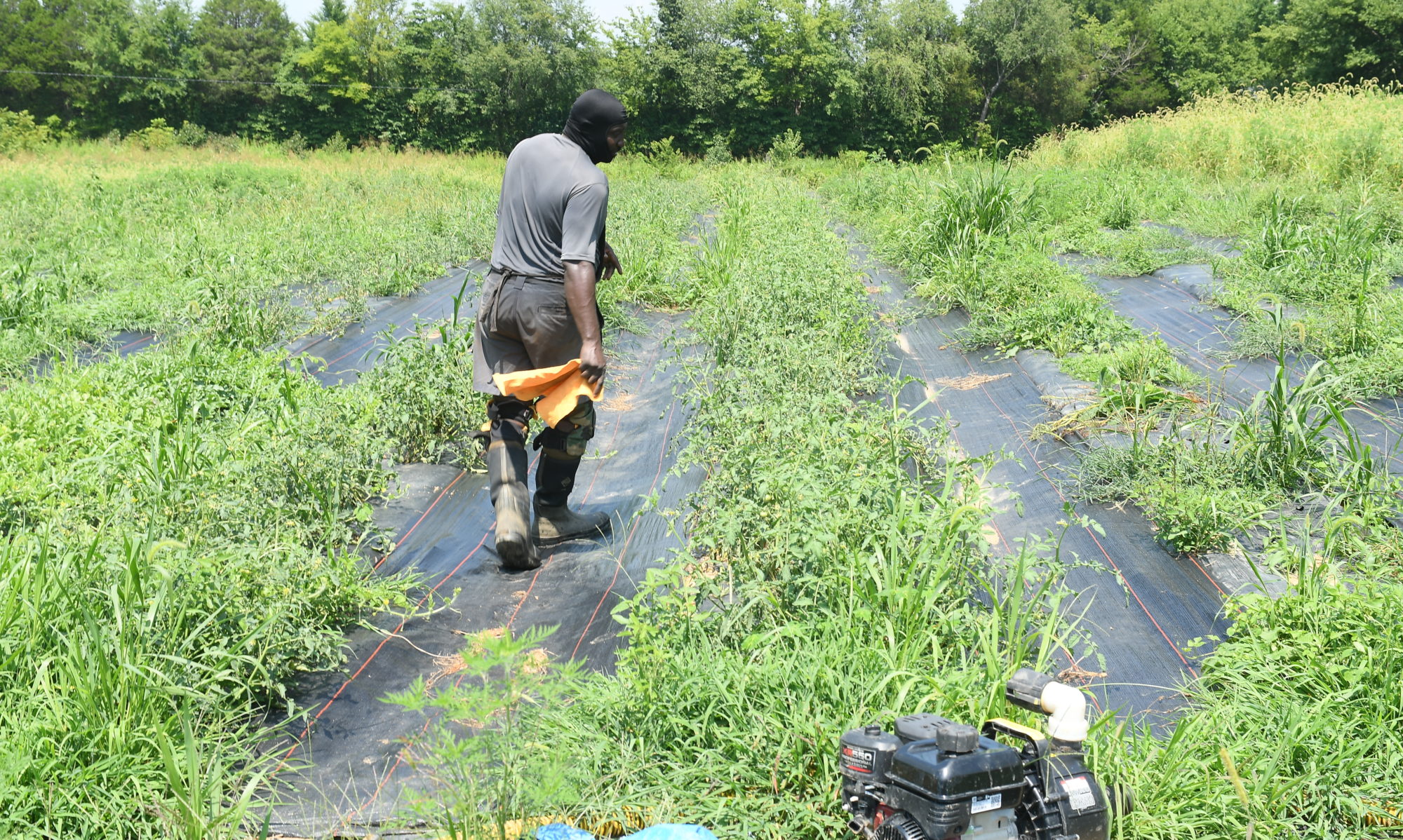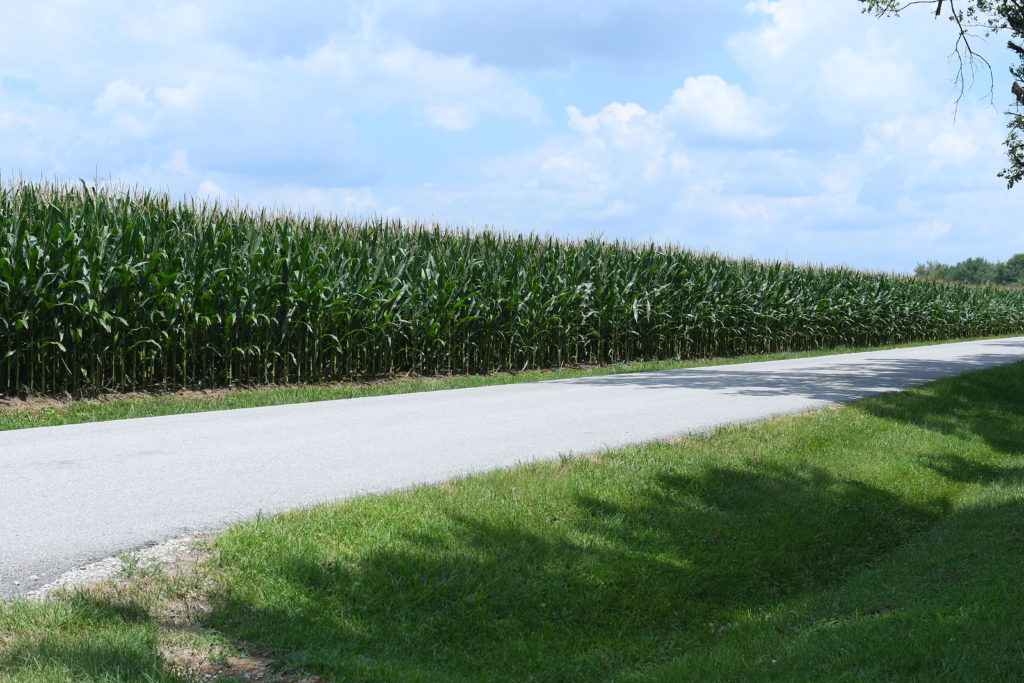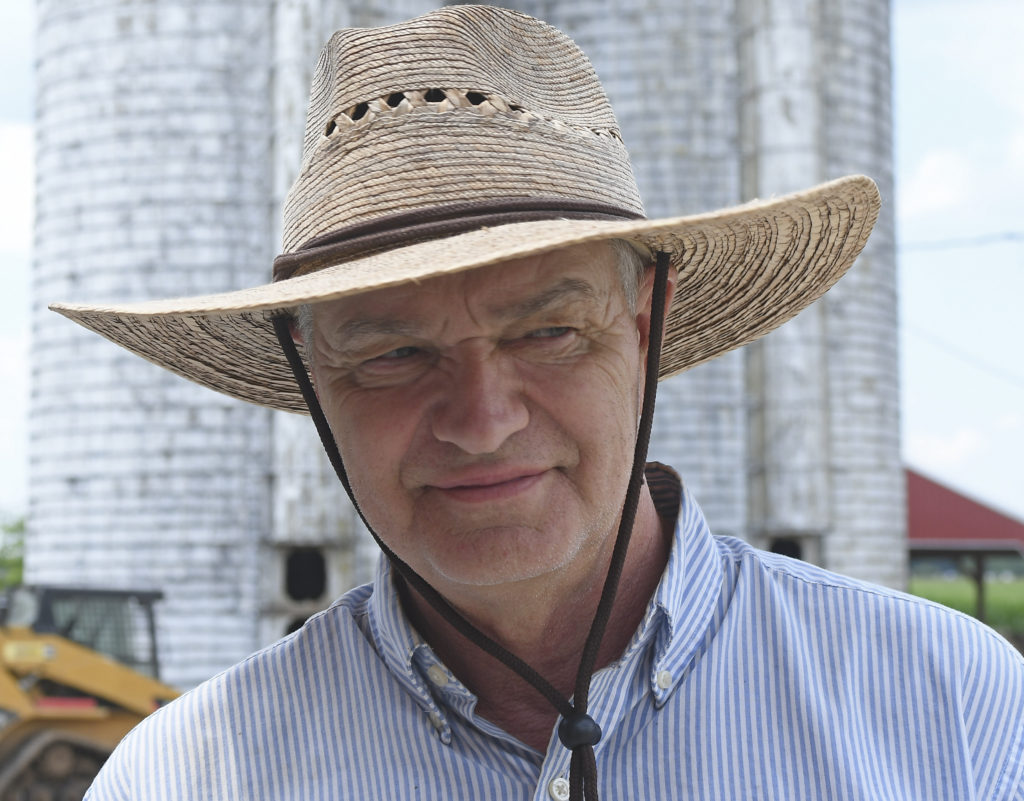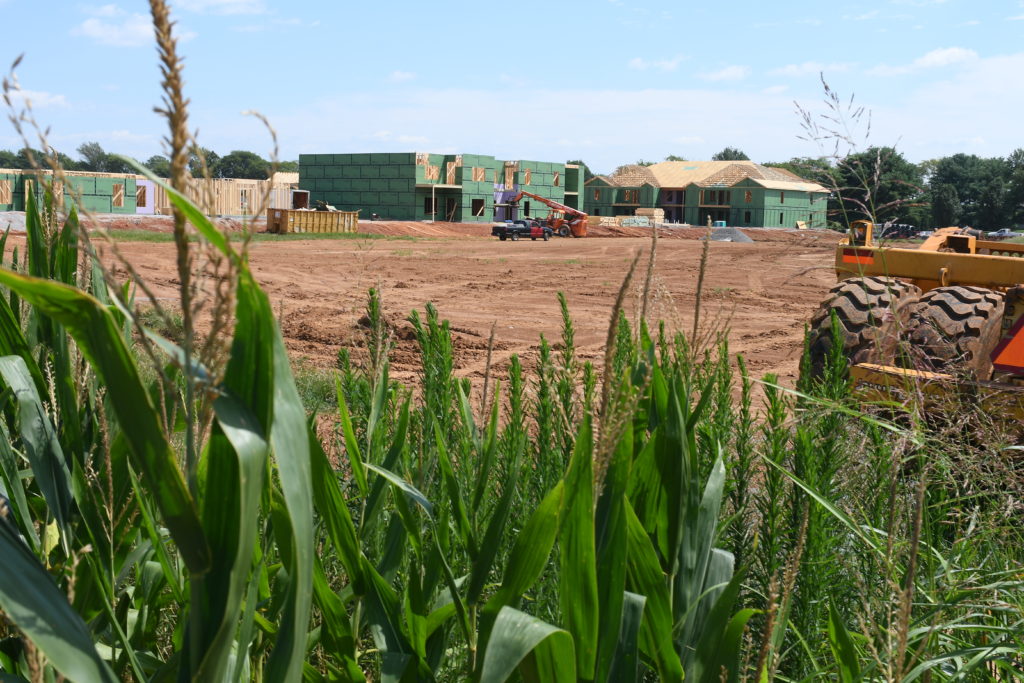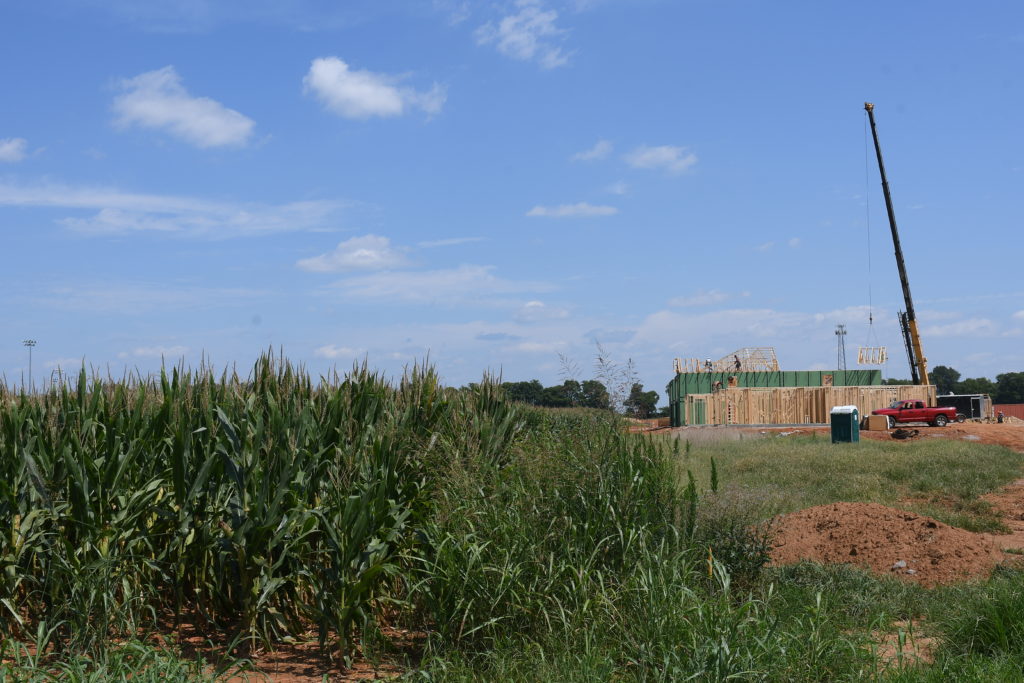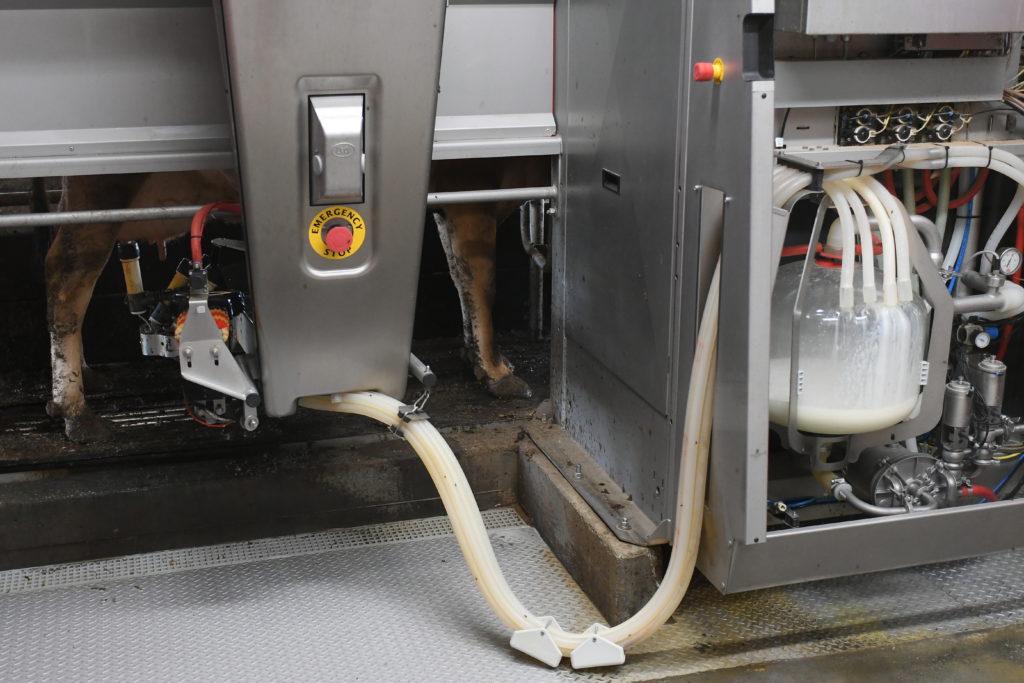‘Saint’ Jewell plants his faith in the soil
By Ingrid Sturgis
The children of second, third and fourth generation farmers are fleeing the land. Not Teheran “Saint” Jewell.
Jewell, of Oakland, Kentucky, sees himself as a savior of the disappearing family farm. When others went off to college never to return, Jewell was anxious to get back to the land with his agriculture degree and innovative ideas from the University of Kentucky.
While other farmers may want to go big, his place is intentionally small and made manageable by using the community-supported agriculture or CSA model. Organic farms like his tout sustainability and specialize in selling harvest subscriptions to customers for produce they can trust to preserve their health, the land and the livelihood of the American farmer.
A tall man with thick arms and broad chest, Jewell wears a black hood and black sleeves that shield his bald head and bare arms from the crop dust. His high boots with knee pads end just below his dusty shorts. Standing in 85-degree weather one morning as sweat bees buzzed around his head, Jewell admitted farming is hard work. But it’s work he has always wanted to do.
“I’m 39 years old and have been on a farm for 39 years, working two or three jobs for 36 years. Working probably, since I was 6.”
Jewell comes from a long line of farmers. His parents were sharecroppers for decades before they were able to get a U.S.D.A. loan to buy a bit of land in the 1997.
Black farmers “are part-time farmers who work a 9 to 5 and need an enterprise that makes it easy to get out in field after working a full day’s job and need something that is profitable,” Jewell said. “There’s a lot of farm owners but not a lot of farm managers. We want to find young farmers to utilize land that is lying fallow. “
At Taste of Jewell Farm, a scraggly patch of land, he uses 150-foot lengths of plastic to keep the persistent weeds at bay. He grows potatoes, tomatoes, sweet potatoes and some watermelon. His day starts at 2 a.m. and ends at 10 p.m. He works 3 of the 5 acres, plowing, planting and reaping the long rows, most days by himself.
Despite his optimism, he acknowledges that life as a black farmer is not easy. Jewell said he must fight the perception that black farmers are extinct and the quality of their product is inferior. He also fights racism at the farmers’ market where white vendors who charge more have their booths mobbed as he stands there with a smile, selling higher quality produce at an affordable price.
Jewell supplements his farm income by running a cleaning service and working for the Kentucky State University Cooperative Extension to train other would-be farmers in techniques he has gleaned from workshops in Europe, other cooperative extensions and in business courses. He has found it hard to keep the people he has trained — they usually bolt after a few days of backbreaking work under the hot sun. The program he teaches through the extension unit at KSU provides those interested in farming with modernized, sustainable growing techniques that don’t damage the land and can bring in $1,800 a week.
This year, few have made it to that goal. Still he is bullish on farming. He calls it an excellent occupation for people seeking independence and a steady income, and those who don’t mind hard work. “With this project, anyone who steps out here can learn a new practice that can help them out,” Jewell said. You are going to be better able after a five-year process to go out and buy you an acre of land that can make you $20,000 to $30,000 of profit … hopefully,” he said.
But Jewell can also see the storm rising across the landscape. If the trends persist, he predicts in 20 years all American small farmers will be extinct.
Where is Oakland, Ky?
While we met some inspiring people on this reporting trip, Teheran “Saint” Jewell was a gem.
At age 39 and with a degree in agriculture from the University of Kentucky, Jewell’s zeal and passion for farming were evident. Two percent of small farmers in Warren County are black and he is one of them.
In this reporter debrief, Ingrid Sturgis and Jason Miccolo Johnson discuss what makes Jewell special.
